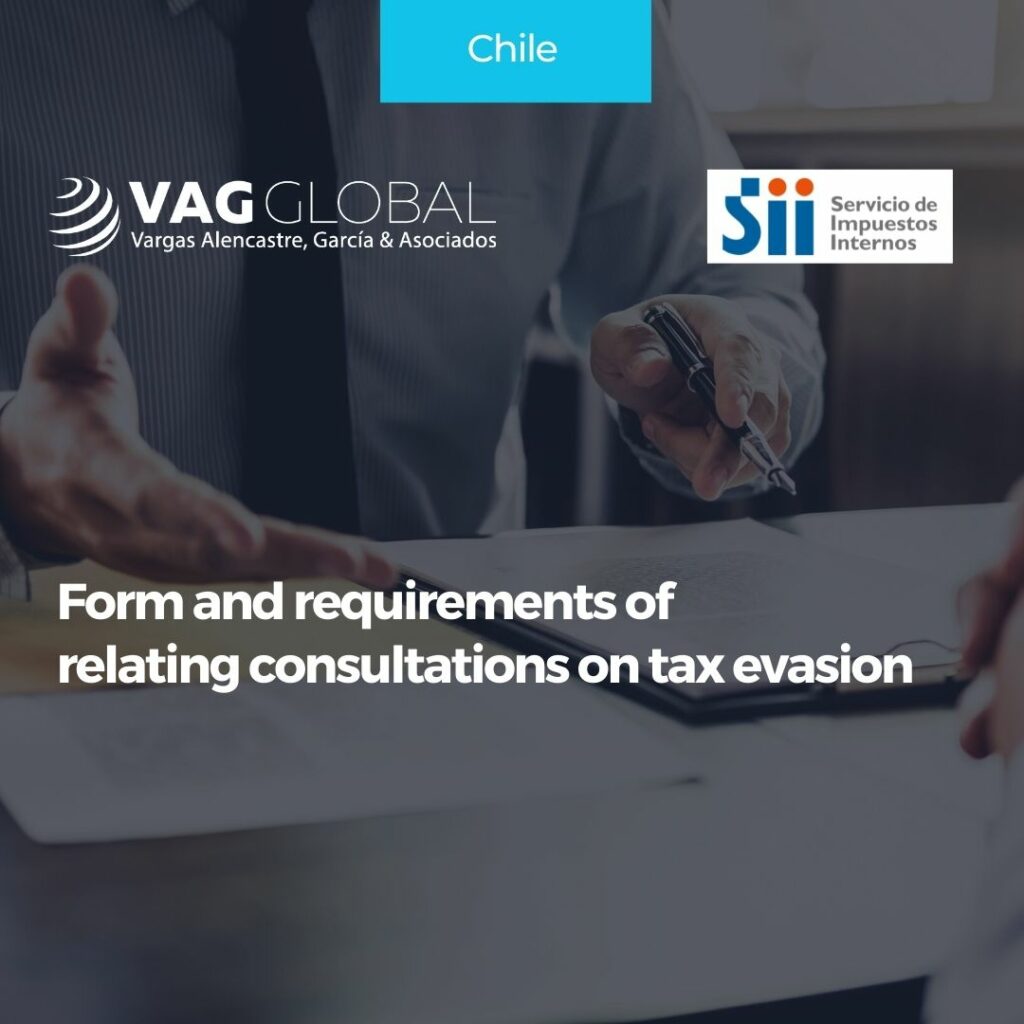Through SII Exempt Resolution No. 112, the SII (Servicio de Impuestos Internos – Internal Revenue Service) establishes the form and requirements of the relating consultation by taxpayers in tax avoidance matters under Article 26 BIS of the Tax Code.
1. What does binding consultation refer to?
Article 26 bis of the Tax Code after its amendment, regulates the relating consultation procedure in tax avoidance matters.
This enables taxpayers or persons liable to pay taxes, who have a personal and direct interest in the mentioned operation, to consult the Service on the application of Articles 4° bis, 4° ter, and 4° quater or other special anti-avoidance rules to the acts, contracts, businesses, or economic activities adequately specifying them for such purposes.
In this regard, taxpayers may consult whether or not the transactions indicated are susceptible to be classified as abuse or simulation under the general anti-avoidance regulations or subject to any thereof.
2. Form to file binding consultations
Taxpayers or parties obliged to pay taxes, who have a personal and direct interest in the respective operation, must enter:
- Las consultas vinculantes en materias de elusión a través del sitio web www.sii.cl, mediante el Menú de Servicios online,
- Relating consultations on tax avoidance matters through the website www.sii.cl, Online Services Menu.
- “Administrative Petitions and other Requests” option.
- “Consultations on 26 bis of the Tax Code”.
- “Form to enter consultations on tax avoidance matters”.
It is important to consider that taxpayers may consult on their behalf or third parties if they have been authorized for such purposes.
3. Requirements to file the “Form to enter consultations on tax avoidance matters”
The taxpayer must do the following to complete the aforementioned form:
- Formalize the consultation in a digitalized form, identifying the consultant with a clear indication of the personal and direct interest that the consultant has in the consulted matter and indicate an e-mail address through which the necessary notifications will be made, and background information will be requested. If a specific anti-circumvention rule is being consulted, the rule being consulted must be expressly indicated.
- Attach the necessary documents (such as contracts, deeds, powers of attorney, etc.) without presenting them physically. For such purposes, an electronic file will be enabled.
- Expressly select when filing the option that the consultation is made under Article 26 bis of the Tax Code, indicating that it is a relating consultation. Otherwise, it will not be binding and will be transferred to a competent area.
- Indicate if the taxpayer and the matter consulted are under audit process and/or pending litigation at the date of entry.
- Add the subject or summary of your consultation, where the following should be considered:
- Perform the relating consultation duly grounded and contain the concrete and detailed exposition of the totality of the acts, contracts, businesses, or economic activities intended to carry out and subject to the consultation.
- Accompany it with the necessary background information for its adequate analysis and resolution, clearly stating the general or specific anti-avoidance rule(s), whose application to the operations in question is being consulted.
- Perform in formal and respectful terms.
- Accept the entry of the consultation under the provisions of this resolution, filling in the box provided for this purpose (send consultation).
Once done, the SII will issue an entry voucher for the consultation.
4. Effectiveness
This resolution is effective as of October 6, 2021.
Source: Servicio de Impuestos Internos 06/10/21
